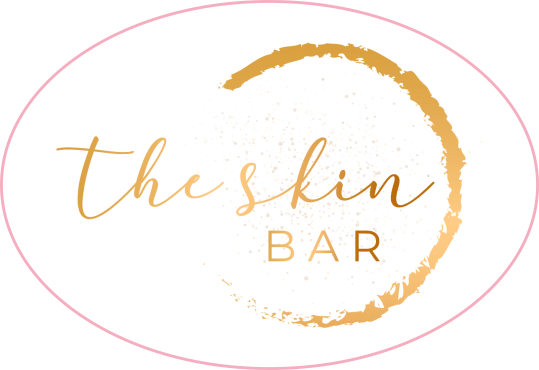Today, more people than ever are looking for safe and permanent alternatives to hair removal. Long gone are the days that people want to worry about unwanted hair growth or manage pesky waxing appointments, shaving, or threading. Laser hair removal is highly sought out as a way to permanently slow down hair growth and inhibit future hair growth.
It’s a non-invasive method that uses laser light technology to destroy the hair follicles, preventing them from producing new hair. However, one of the most common questions that potential clients ask is, “How long does laser hair removal last?” This article aims to answer this question and provide you with all the necessary information about laser hair removal.
Understanding Laser Hair Removal
Before we delve into how long laser hair removal lasts, it’s important to understand what the procedure entails. Laser hair removal involves using concentrated light (laser) to target and destroy individual hair follicles. The pigment in the follicles absorbs the light, which then destroys the hair. This process significantly reduces future hair growth.
The effectiveness of laser hair removal depends on several factors including skin type, hair color, and the area of treatment. Darker hairs absorb more light and respond better to treatment compared to lighter hairs. Similarly, areas with thick coarse hairs such as the bikini line or underarms often see better results than areas with thin fine hairs like on the arms or face. The better the contract between the skin tone and hair color, the better the results.
Laser hair removal can be done on nearly all parts of the body and requires several treatments over a period of time to see the best results. The most common areas of laser hair removal are the underarms, legs, and bikini line. But, nearly all areas of the body, including the face, can be treated with laser hair treatment to slow and stop the growth of unwanted hair.
The Longevity of Laser Hair Removal
Now onto the main question: how long does laser hair removal last? The truth is that results can vary widely from person to person due to individual differences in hormone levels, age, and genetics. However, most people experience significant reduction in hair growth after completing a series of treatments.
It’s important to note that laser hair removal doesn’t permanently remove all hairs but rather reduces them significantly. People should not expect complete hair loss after a single session or two. After a series of treatments (usually 6-8 sessions), most people see an 80-90% reduction in hair growth in treated areas. The remaining hairs are often lighter and finer than before. Dermatologists recommend going for sessions once every 4 to 6 weeks.
In order to figure out how many laser hair removal treatments you may need, consider the growth pattern of hair. There are four stages of growth, including the growing phase, transitional phase, resting phase, and shedding phase. Laser hair removal can only target the hairs during the growing phase, which means it requires several sessions since hair growth is in all different phases at a given time.
The results are generally long-lasting; many people enjoy smooth skin for months or even years. However, some hair may eventually grow back. This is because the laser targets and destroys active hair follicles, but it cannot prevent new ones from forming or dormant ones from becoming active again. Therefore, maintenance treatments are often needed to keep the skin smooth and hair-free.
Factors Affecting the Duration of Laser Hair Removal Results
Several factors can influence how long the results of laser hair removal last. These include:
1. Hormonal Changes: Hormonal fluctuations can stimulate new hair growth, shortening the duration of your laser hair removal results. Conditions like menopause, polycystic ovary syndrome (PCOS) or pregnancy can cause significant hormonal changes that may lead to increased hair growth.
2. Treatment Area: Some areas of the body respond better to laser hair removal than others due to differences in hair thickness and growth cycles. Hair tends to grow back quicker on the face or neck areas compared to the rest of the body.
3. Individual Differences: Genetics and individual health factors can also affect how long results last.
4. Skin/Hair color: Laser hair removal is most effective on people with light skin and dark hair. This is because the laser targets melanin, so it may take longer sessions or not be as effective for those with darker skin or lighter hair.
Maintaining Your Laser Hair Removal Results
To maintain your smooth, hair-free skin for as long as possible after laser hair removal, you may need periodic maintenance treatments. The frequency of these treatments will depend on your individual circumstances but could range from every six months to every few years.
In addition, taking care of your skin by protecting it from sun exposure and keeping it moisturized can help extend the life of your laser hair removal results. Before going to your laser hair removal appointment, make sure to exfoliate well and to shave beforehand. Also, on the day of your treatment, be sure to avoid all skincare products like lotions or deodorant that could cause a barrier because of your skin and the laser.
Conclusion
In conclusion, while laser hair removal doesn’t provide permanent total elimination of all hairs, it does offer a long-term solution for reducing unwanted body and facial hairs significantly. Some people opt for laser hair removal because the effects can be long lasting, but it also prevents ingrown hairs and makes the skin look more even. It can reduce time and expense between hair removal like waxing. The longevity of results varies among individuals but with proper care and occasional maintenance treatments, you can enjoy smooth, virtually hair-free skin for a long time.
Remember that choosing a qualified and experienced professional, like all employees at The Skin Bar, for your laser hair removal treatment is crucial in achieving optimal results and ensuring safety during the procedure. Always do thorough research before deciding on a clinic or practitioner for your treatment. Contact us today for a free consultation.


Recent Comments